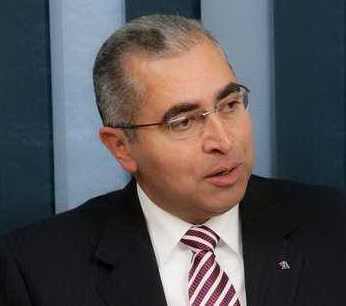The pace of the US dollar price’s rise against the Egyptian pound moderated on Sunday. The slowdown was supported by the announcement that Egypt and the International Monetary Fund (IMF) reached a new funding agreement worth $5.2bn.
The latest agreement between the two comes on the back of the almost $2.8bn in emergency financial assistance Egypt received from the IMF in May. The assistance was provided under the IMF’s Rapid Financing Instrument (RFI) to help Egypt meet urgent balance of payment needs stemming from the coronavirus (COVID-19) pandemic.
The Central Bank of Egypt (CBE) reported that the price of the US dollar at the end of trading on Sunday recorded EGP 16.1683 for buying, and EGP 16.2683 for selling, compared to EGP 16.1489 for buying and EGP 16.2489 for selling last Thursday, an increase of about 2 piasters.
Meanwhile, the CBE announced on Sunday that Egypt’s foreign reserves fell to $36.0037bn in May, from $37.037bn in April.
Egypt’s gold reserves, however, increased by $100m to $3.805bn in May, from about $3.705bn in April, which cushioned the drop in net foreign reserves, while FX reserves were down by $1.048bn.
Moreover, the balance of foreign currencies decreased by about $1.048bn to $32.094bn in May, compared to $33.142bn in April.
The balance of special drawing rights also decreased to $107m, compared to $192m in the comparison period, and the balance of the International Monetary Fund loans reached $2m.
Banking expert Mohamed Abdel-Aal told Daily News Egypt that the recent decline in the Egyptian pound price against the US dollar is normal in light of the ongoing coronavirus pandemic.
Abdel-Aal noted that the local currency’s devaluation is temporary, and that there are 12 factors supporting the Egyptian pound, the most important of which is the agreement with the IMF.
Haitham Abdel-Fattah, head of the treasury and capital markets sector at the Industrial Development Bank (IDB), told the Middle East News Agency (MENA) the pace of the dollar’s rise against the Egyptian pound is likely to decline significantly during the coming period. This follows the country achieving three major successes in the international market that boosted confidence in the local economy.
They have also provided a significant amount of cash liquidity in foreign currency. This has, in turn, contributed to large compensations for the negative effects of the pandemic, and provides financing for Egypt’s foreign exchange needs.
Abdel-Fattah added, in the space of a few weeks, Egypt has signed two financing agreements with the IMF for a rapid financing tool, worth $ 2.8bn. The second, a credit preparedness agreement worth $5.2bn and which brings the total to $8bn, came only two days ago.
The agreement is considered an unprecedented success for the Egyptian economy. It also strengthens confidence in the future of the economy, reflecting the CBE’s large-scale efforts in the field of monetary policy and economic support.
Abdel-Fattah also noted Egypt’s success in marketing international bonds, valued at $5bn, which have attracted high demand from international investors. The volume of demand has now reached over $ 22bn. On the back of this, he expects the continued decline of the pound against the dollar to continue.
Mohamed Fathy, Chairperson of the Board of Directors at Al-Nasr International Exchange Company, said that the dollar witnessed speculator demand speculators last week. The demand decreased significantly, however, with the announcement of the new IMF agreement. The decline also follows on the back of the successful $5bn international bond selling process that would provide Egypt with approximately $13bn.
Mohamed Bagha, Professor of Finance at the University of Suez, said Egypt’s proactive efforts to compensate for the coronavirus-related lack of resources at Al-Nasr International Exchange Company reflects a good, early reading of the situation.
He noted that the government and CBE efforts will support Egypt’s economic situation and reduce the repercussions of the ongoing health crisis.
Bagha interprets the Egyptian pound’s recent decline as logical and natural due the free market policy of the exchange rate applied by CBE since the end of 2016.
He also noted that the dollar will witness a local market decline in the coming period with the support of foreign exchange cash flows. The government and the CBE recently succeeded in obtaining these cash flows, either from the IMF or international markets.
Economic expert Yasser Agiba attributed the recent rise in the dollar to the decline in foreign currency sources. They are represented in the remittances of Egyptians working abroad.
He also attributed it to the weak global trade movement as a result of worldwide border closures and the halting tourism movement, which is Egypt’s largest source of foreign currencies.
Agiba stressed that this rise is a temporary and expected decline of the dollar, with further declines to be expected over the upcoming period.


